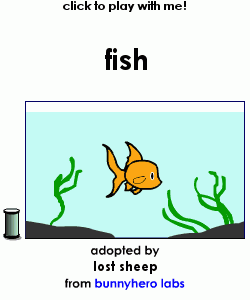


Wooo!!! My gap year has finally arrived, so i thought i'd record it in the form of a blog from start to finish... And now that i'm back doing boring things once more, you can just listen to my philosophical musings on life, the universe and everything... (or you could do something more interesting)
"Sarah Kane's radical reworking of Seneca's classical tragedy of incest and unrequited lust. Phaedra's Love is a bold and provocative revisioning of the story of Phaedra's obsessive and destructive love of her son Hippolytus and his violent punishment by Theseus."
"Cynical and bored heir-to-the-throne, Hippolytus, is not a fan of the world in which he lives. He sees it as both hypocritical and without morals. He rejects the outside world and instead fills his life with sex, television, masturbation and hamburgers, yet none of this satisfies him. His stepmother, Phaedra, has a burning desire for Hippolytus. When the world-shunning heir also rejects her love, it sparks a chain of events that eventually delivers Hippolytus what he longs for.""Sarah Kane's writing divided and shocked her audiences, but is now considered central to modern European theatre. Phaedra's Love has only been seen once before in the UK; when Kane directed it herself at the Gate.
Phaedra's Love is directed by Anne Tipton, the 2004 winner of the James Menzies-Kitchin Award for Young Directors."
There's something about this play that really reminds me of Beautiful Child - that i saw at this year's Edinburgh Festival. They certainly shared the same audience reaction of completely shell shocked silence - occasionally leading to slight hysteria, mixed with a great deal of reflection; and they both had very similar taboo subject matter - one of child molestation (and homosexual molestation at that), and the other of incest and all the dark aspects of life - yet both had over riding themes of both (to a greater or lesser extent) love and release. The love generally being the various relationships between characters, while at the end the main character got a release of some kind in the end. I don't know why i find the two of them so striking, but they were both certainly some of the most interesting theatre i've seen.
They also shared a common style of design - Phaedra's Love was more complex, but both had a desolate grey/black set - and very rectangular, harsh and cynical. Beatiful Child being particularly effective in this purely for it's simplicity. (see, eariler edinburgh post, for more indepth description http://www.wanderings-of-a-lost-sheep.blogspot.com/ - most of the way down "Edinburgh Festival still... RSC day!!! Amoungst other things...").
This play was set mainly on the square metallic stage directly infront of us. I thought that this was really interesting choice, because while they were in a posh stately house, it was coompletely in line with that kind of minimalist, expensive look, but equally, as a prision cell it was desolate and emtpy - then when they were outside, it can look rough (well, not neat and stately home like) and rustic as the ground. It was also very 'echo-y' in the prison cell scene.
There was also brilliant lighting in that scene - for most of it there is a stripey gobo creating the effect of light shining through cell window bars than lit the wall and the stage from above and the front. After the minister had been 'taken' by Hippolytus we lost the lights on the back wall, so the stage was only lit in beams from above. Hippolytus then looks up and it had an incredibly Christ-like/divine affect. While i haven't read the script, i've never been given the impression that there are religious over-tones to the play - and i don't think that, extrovertly, there are. But there is certainly something very christlike about the main character - obviously no with is behavious, but especially with his suffering, isolation and release through death - until this point, he also does seem somewhat invincible and untouchable - nothing has any affect on him - you could imagine Christ becoming like that after nobody listened, and he was isolate. Maybe i've thought about his too much...
One final design point i want to get down is the use of the gauze, which at first i thought was just a screen. At first it is used, as such, in bewteen scenes with a stong colous wash and a pulsating heart beat sound. Later, however, you gradually come to realise that there is, infact, another level to the stage, much higher than the rest, which it covers up. This is discovered as Phaedra's body is cremated. She is lying on a plinth up there lit with a dim white light and lots of red/amber. On the gauze is a flickering orange/red light flickering like flames. This gets stronger and more vibrant/intense as the sound volume goes up and up. It was quite one of te most effective, yet simple evffects i've seen. As it intensified i, and i think, the whole audience, really did feel very uncomfortable - it was so oppresive, and intense. I suppose it's largely just because it looked kind of realistic and as a culture we are simply not used to seeing that kind of thing. I just find it amazing that something so simple can create such an amazing effect on people.
Despite the deep despair and really harsh side of life it so drastically portrays, there really is something very compelling and, once you've recovered, really quite addictive, about Sarah Kane's play. I really do intend to read more - and particular see them, if i can find them. It certainly makes for an interesting evening out - particularly if they were all as well designed, directed and staged as well as this one.
"Mark Rylance clearly relishes a challenge. The World and Underworld season at the Globe is his last as artistic director; it would have been easy for him to turn in a safe and straight-forward Prospero and finish off his tenure in a muted but popular manner.
Instead he opted to stage Shakespeare's late play using only three men - and a rope. The resulting production has been met with a rather sniffy reception by the critics but surely it's to Rylance's credit that he was willing to take creative risks up until the last.
Prospero, as played by Rylance, is a man capable of descending into quiet depression and of working himself up into a magical rage. According to the play's director, Tim Carroll, there was a definite and conscious decision to paint Ariel and Caliban as direct opposites within the production - letting them reflect the different elements of Prospero's character as they war with each other for dominance.
Once the psychological reasoning behind this decision is understood it becomes easier to see how the remaining roles were apportioned amongst the cast. So, in addition to playing Prospero, Rylance also gives a very funny performance as the drunk Stephano - who Caliban mistakes for a god.
But this role-hopping is less successful when he switches to some of the smaller parts: Alonso or Sebastian. This isn't a comment on his skill as an actor; it's just that, unless you know the play very well, it can become rather confusing working out exactly who is talking to who.
Edward Hogg takes on the roles of Miranda and Ariel. He plays them both as other-worldly intellectuals who see only the best in the people around them. His Miranda is not only very engaging in her innocence but also very funny; her wonder and coyness around Fernando drew some of the biggest laughs from the yard.
Of the three actors, Alex Hassell is perhaps the most successful at clearly defining his roles in the eyes of the audience. His Caliban is a true creature of the earth; he walks with his knees bent and swings and hops around the stage. It's quite a performance, which therefore makes it even more impressive when he, in the blink of an eye, transforms himself into the handsome hero Fernando.
This is a complex and concept-heavy version of the Tempest requiring the total commitment and concentration of the three actors involved. Though they all perform superbly in their various roles, the production fails to satisfy on a number of levels. A few of the devices used in the play confuse more than they enlighten: there are these chess pieces that, at the beginning, seem like a rather clever idea but they soon feel overused. And the novelty of that rope, dangling in the centre of the stage, soon starts to wear thin - although when Caliban swings from it or Ariel uses it to fly, it does come into its own.
It's not just the props that create problems. Though the harmonising of the six singers, who sat above the stage and performed with no accompanying instruments, was undoubtedly beautiful, it often distracted from the action.
The same could be said for the dancers (for some bizarre reason clad in leather jackets) who represented the spirits Prospero commanded on the island. The only time their presence actually worked was during the sequence when Prospero conjures a wedding masque, then the Globe worked its particular magic and the audience were spellbound.
In the end that was the real problems with this production: everything had the potential to work well - you could see the thinking behind each of the elements - but thrown together the whole thing jarred. This Tempest was a worthy experiment that did not quite come off."
Great review - really really intrguing play. I really enjoyed it, particularly it being my first Globe experience - although as it point it, maybe didn't quite pull it off. I don't know the story of the Tempest on any detail whatsowever, and much to my surpirse discovered aftewadrs that there was about 5 more characters than i had realised... oops... but it fairly well made sense anyway!
The use of props was great. The rope int he midle of the stage was undoubtedly on of the most ingenious for all it's mulitple uses. And the chess board as a representation of the story and puppeteering going on was excellent. The others escape me at the moment, but i guess it was just really refreshing to see theatre with no light or sounds effects worth talk about - pure acting/theatre... a yin to Woman in Balcks aYang :o)
